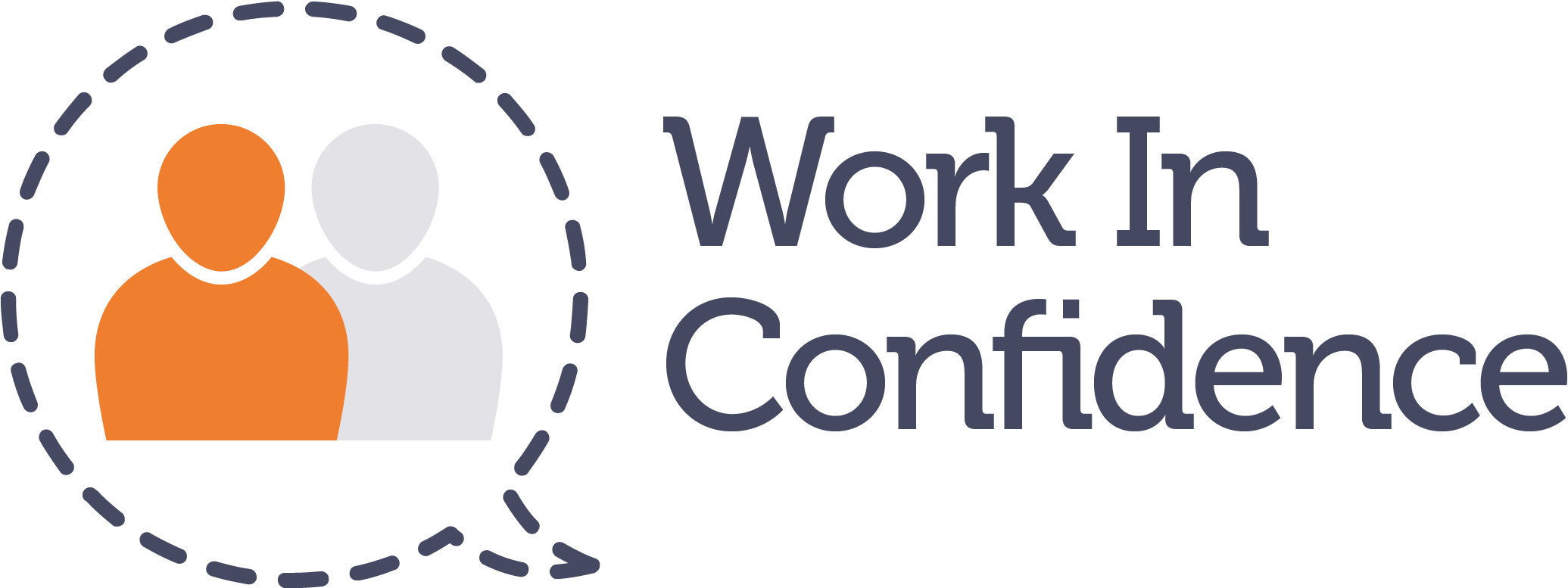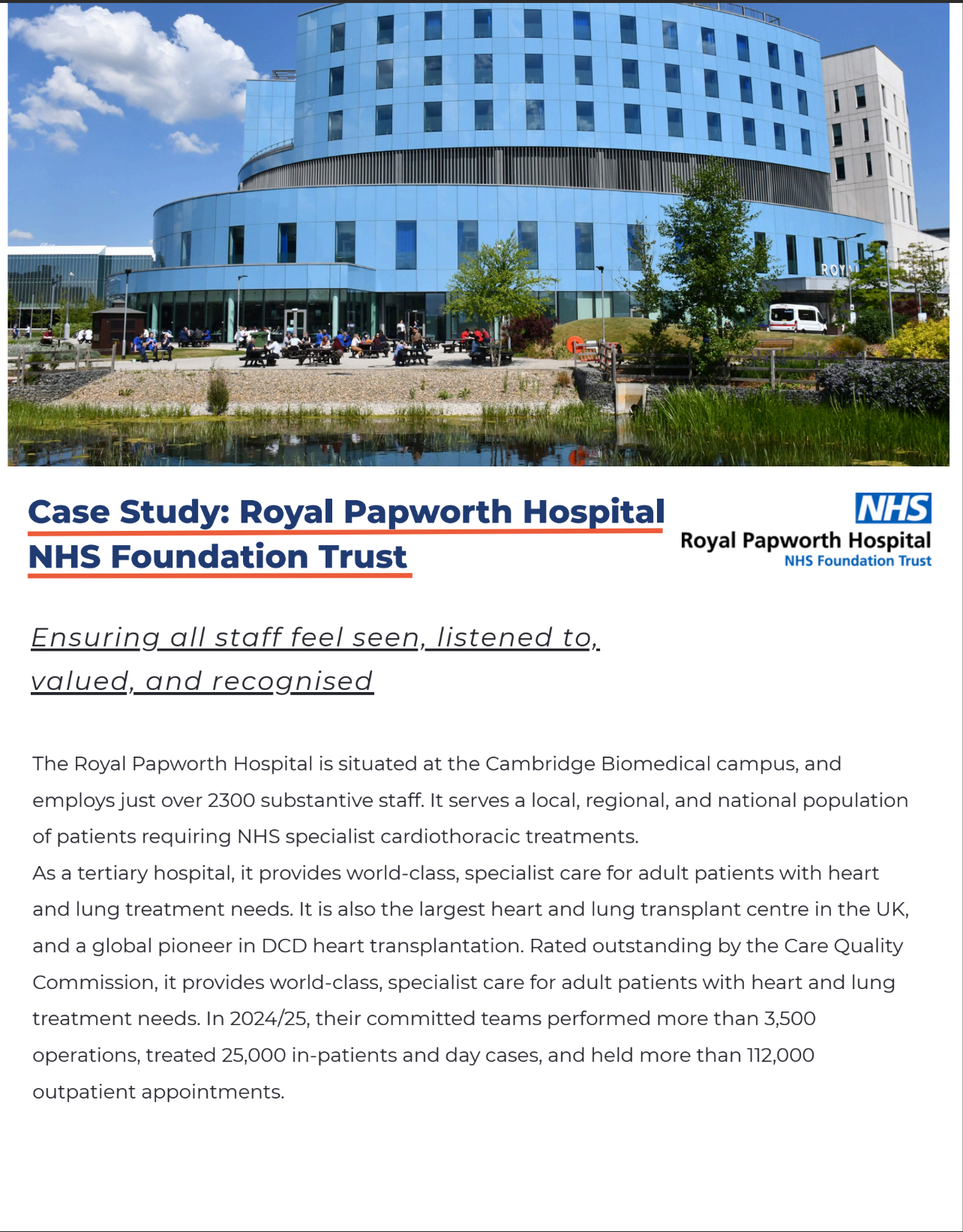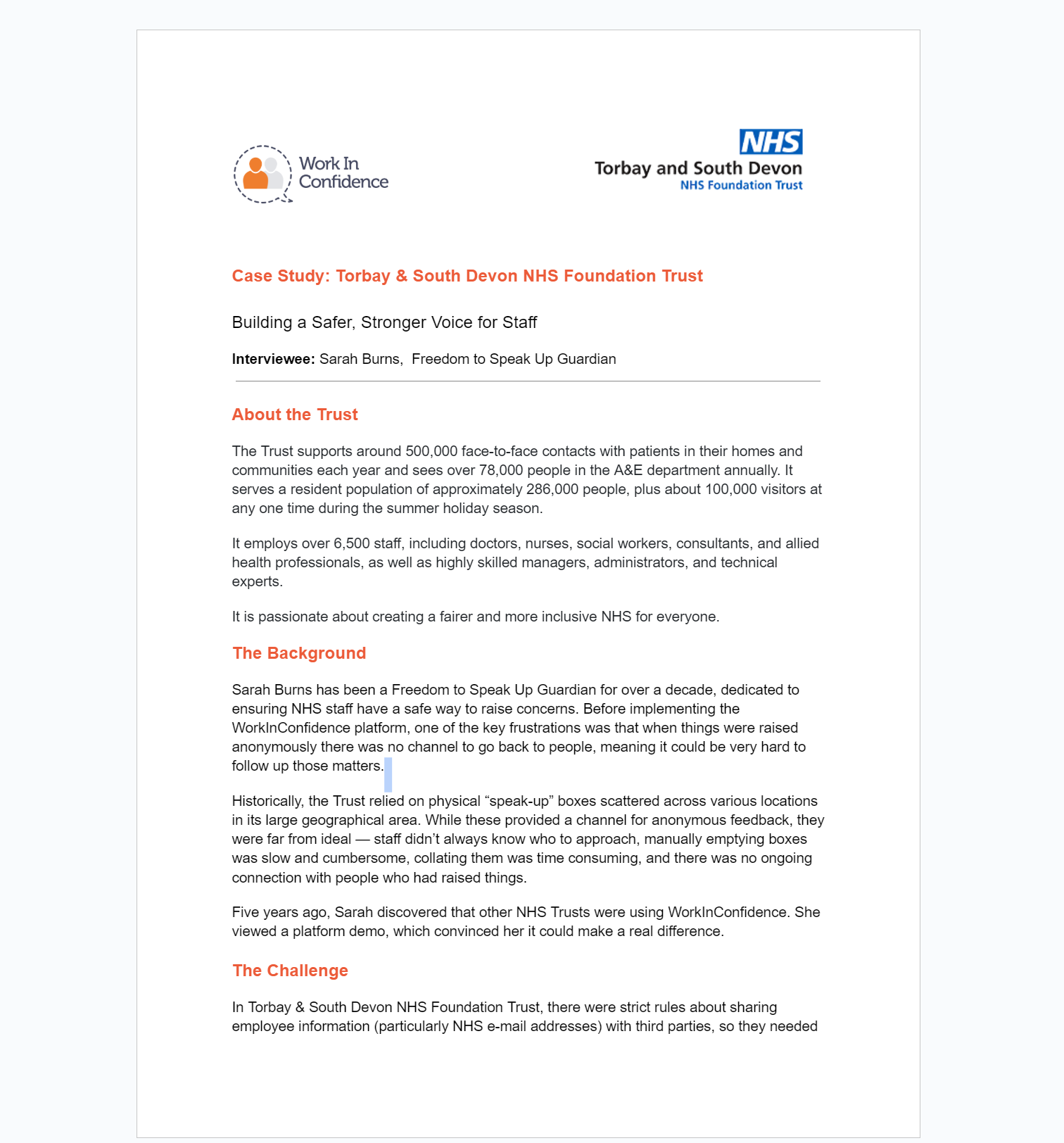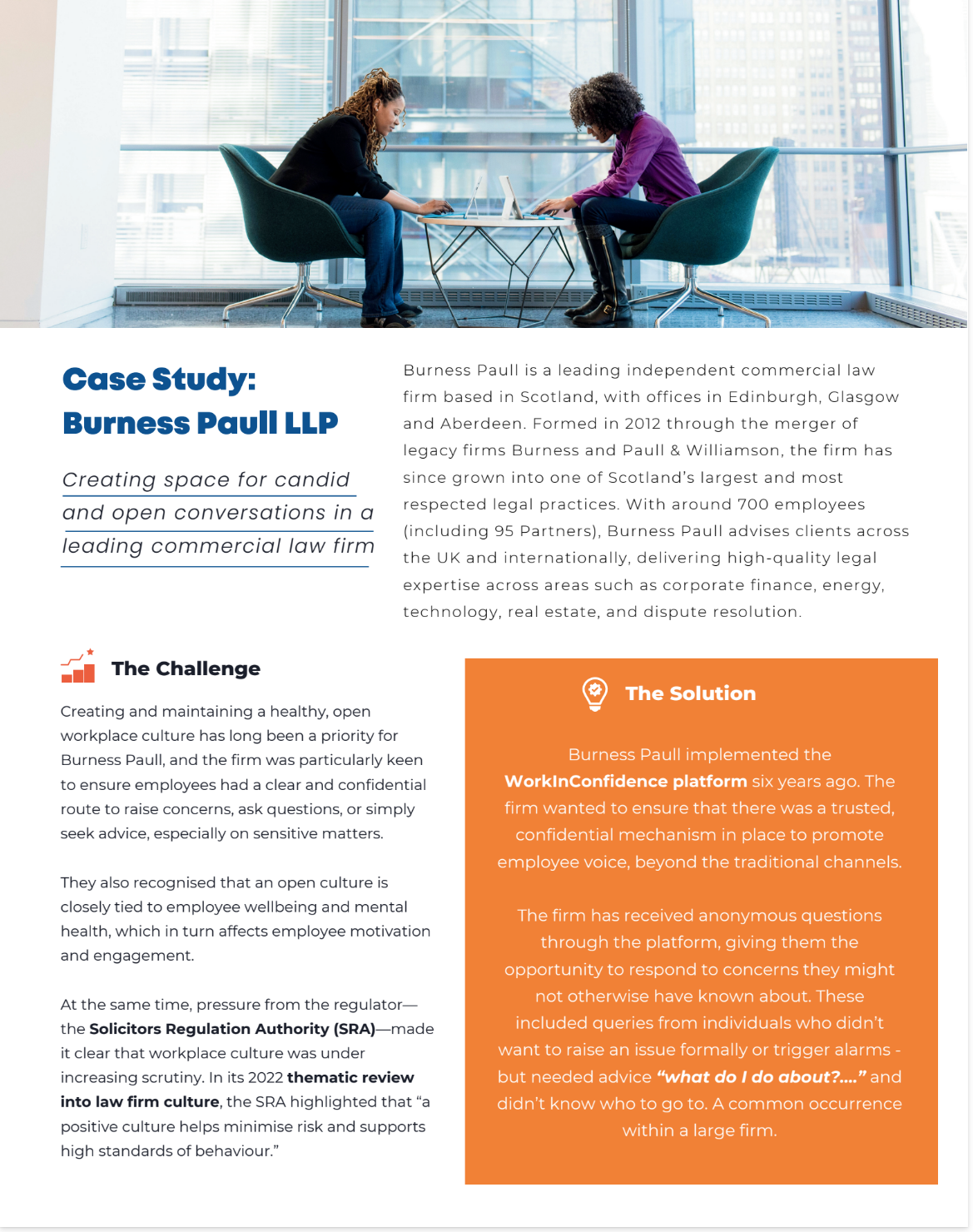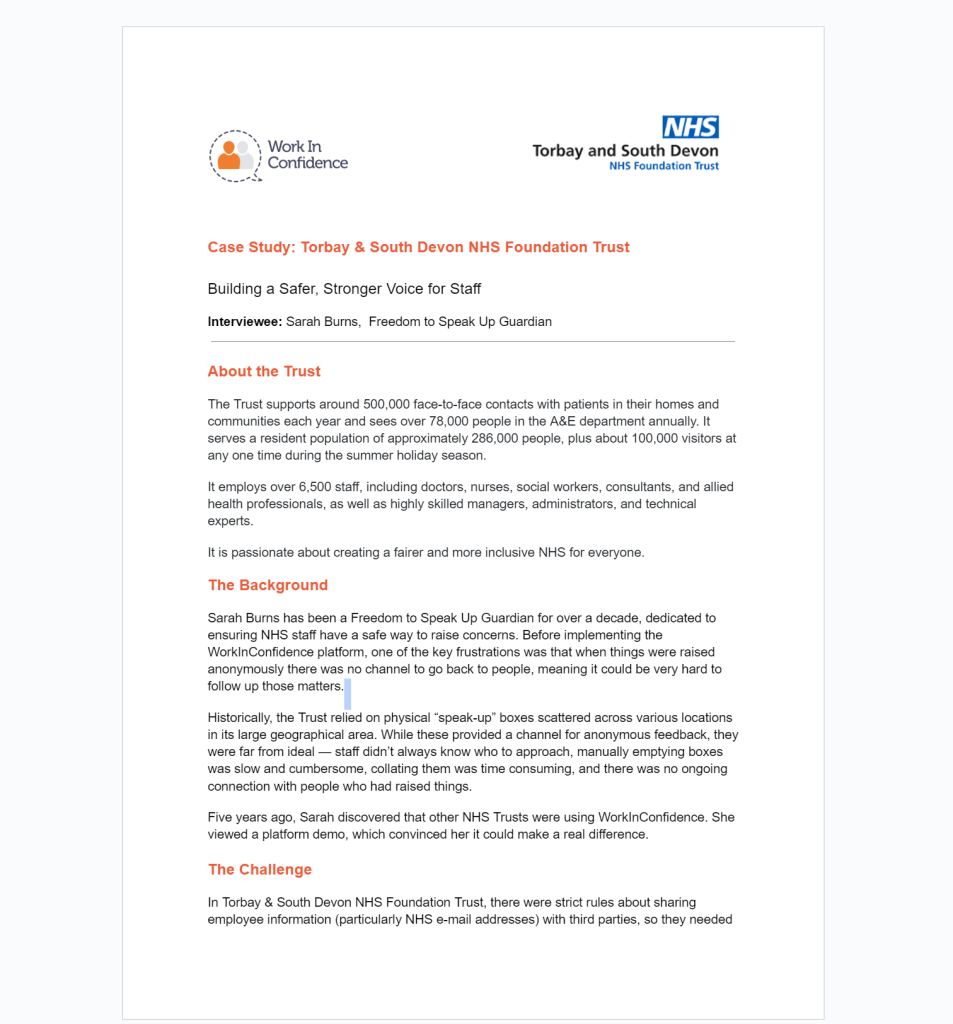
Case Study: Torbay & South Devon NHS Foundation Trust
Building a Safer, Stronger Voice for Staff
Interviewee: Sarah Burns, Freedom to Speak Up Guardian
About the Trust
The Trust supports around 500,000 face-to-face contacts with patients in their homes and communities each year and sees over 78,000 people in the A&E department annually. It serves a resident population of approximately 286,000 people, plus about 100,000 visitors at any one time during the summer holiday season.
It employs over 6,500 staff, including doctors, nurses, social workers, consultants, and allied health professionals, as well as highly skilled managers, administrators, and technical experts.
It is passionate about creating a fairer and more inclusive NHS for everyone.
The Background
Sarah Burns has been a Freedom to Speak Up Guardian for over a decade, dedicated to ensuring NHS staff have a safe way to raise concerns. Before implementing the WorkInConfidence platform, one of the key frustrations was that when things were raised anonymously there was no channel to go back to people, meaning it could be very hard to follow up those matters.
Historically, the Trust relied on physical “speak-up” boxes scattered across various locations in its large geographical area. While these provided a channel for anonymous feedback, they were far from ideal — staff didn’t always know who to approach, manually emptying boxes was slow and cumbersome, collating them was time consuming, and there was no ongoing connection with people who had raised things.
Five years ago, Sarah discovered that other NHS Trusts were using WorkInConfidence. She viewed a platform demo, which convinced her it could make a real difference.
The Challenge
In Torbay & South Devon NHS Foundation Trust, there were strict rules about sharing employee information (particularly NHS e-mail addresses) with third parties, so they needed a trusted, proven partner if they were to introduce new communication tools. WorkInConfidence was widely adopted and was able to offer the required flexibility on registration to protect confidentiality and to enhance staff trust in the anonymity of the process.
Sarah was also conscious that many employees wanted to raise issues but didn’t know how to do it, didn’t feel safe doing so, or didn’t know who to turn to. Her concern was that without a safe, two-way channel, how would the Trust ever really get to know about what was going on and what was being left unsaid? If people were too frightened to come forward, their concerns would go unheard, and of course their problems or concerns be unresolved.
The NHS is notoriously cash-strapped, and Sarah was worried that the Trust might not agree to fund the platform. Nevertheless, Sarah made the case, as her view was without a safe space to speak up, leadership would remain unaware of key issues, leaving problems to continue undiscovered and increasing costs. The platform offered a confidential, anonymous and accessible way for employees to raise concerns and for leaders to respond.
The Risk of Not Taking Action
The Care Quality Commission (CQC) rates NHS Trusts on how “well-led” they are, with those ratings influencing public confidence, staff morale, and even financial performance.
A poor CQC rating puts extra pressure on individuals and can seriously affect employee morale, particularly when they previously thought they were doing a good job.
Sarah sees a definite link between the pressure of the intense scrutiny and increased sickness absence, higher employee turnover, and greater financial strain on the Trust itself.
Impact and Benefits
Since implementing WorkInConfidence, the Trust has seen the number of speak-up cases rise year on year. But for Sarah, it’s not just about the numbers, it’s about the nature of the issues now being addressed which weren’t before. For example:
- Sensitive workplace harassment or discrimination concerns. Recent employee worries have included the impact of new legislation on single sex workspaces, where people would not feel comfortable to speak openly about their worries
- Situations where direct supervisors failed to escalate issues or take action, leaving employees feeling vulnerable and concerned for patient care
One notable example involved a patient regularly sexually harassing staff members. Through the platform, the Guardian was able to identify the right contacts to intervene, resolving the problem and preventing further distress.
Sarah is certain the platform has stopped staff from leaving. In some cases, employees who were off sick due to workplace issues were supported to return; in others, they were redeployed or helped to make a positive decision to move on for their own wellbeing. The result: fewer unwanted resignations and better outcomes for both the Trust and the individual.
She says, “It gives the Trust the power to keep the people who want to stay, or to move on with a happy heart.”
Beyond Reporting – Using Data for Change
The Trust also uses WorkInConfidence to run anonymous surveys on topics such as employee wellbeing and sexual harassment. When people are confident that the surveys are anonymous, the response rate can be as high as 100%.
These surveys have uncovered critical insights, enabling leadership to take targeted action.
The Experience
Sarah praises the platform’s usability, calling it “as good as it possibly could be” and highlighting its flexibility for a broader range of uses compared to Apps she’s seen.
She finds it extremely easy to use.
Conclusion – Key Outcomes
- Increased reporting of previously hidden issues.
- A way back to people who started things anonymously.
- Easier and more joined up storing and tracking of cases.
- Easier and quicker reporting.
- Reduced staff attrition by addressing issues early and effectively
- Actionable insights from anonymous surveys, leading to tangible change.
- Improved trust between staff and leadership.
Better CQC readiness, demonstrating the Trust is well-led and responsive.
